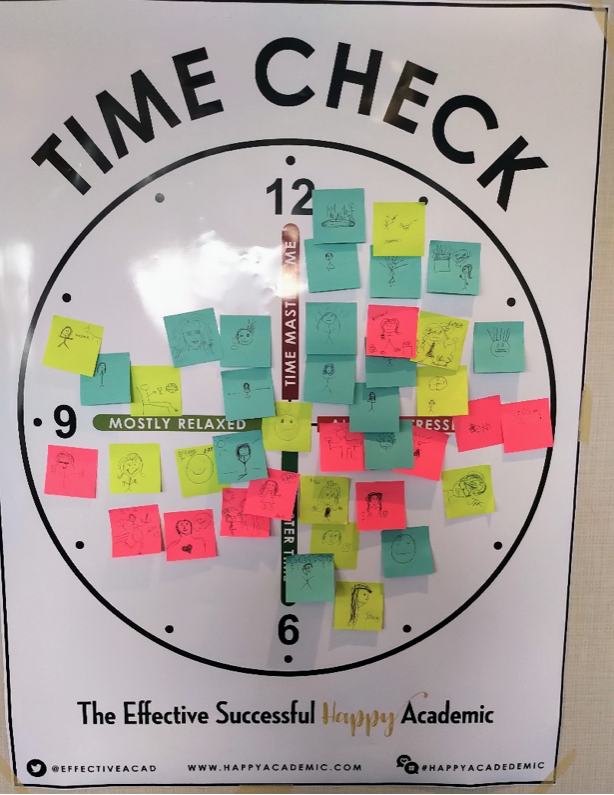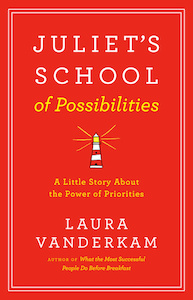Did you know that “time” is the most used noun in the English language?
Ironic—when we all talk so much every day regarding its lack and shortage in our life and work. If only we could have more, we’d get lots more done.
We live this reality every day in our own jobs and life. Whether it’s responding to unexpected last-minute requests from the Government Minister to responding to unexpected events as a Faculty Dean. It’s all too easy to either not have capacity in our days to deal with the unexpected or to de-prioritize our own work in the face of inevitable time pressures. We certainly don’t and never want to do that!
In the last 8 years—whenever and wherever we have led workshops on academic work worldwide—frustrations with time are never far away. Time is precious, valuable, but not plentiful enough in our working lives. Too often we cope with misalignment between work and time by adding more work hours on: morphing non-work time into work time to get by.
In a workshop this month we asked participants about their own perceptions of their time. Check out the results in the picture!
Overwhelmingly participants felt “mostly stressed” when they thought about time, and felt that “time masters me” much more then “I master time”.

But as we’ve argued for many years, there’s never enough time for all the academic work you could do. While everyone has their own personal boundaries around work time, simply adding work hours on is a slippery slope that over time often endangers our wellbeing and makes us less productive and creative in our work.
This is why we’ve always advocated a priority-lens over a time lens to academic work. A stance that reflects not only the unique nature of time as resource that cannot be carried over from quieter to less busy time periods, but also the unique complexity of academic work as extreme knowledge work. Derived from the wonderful manager-tools approaches to work, it’s been good to see others involved in academic work adopt this approach too.
Carrying on thinking about time in this way, as a resource we can implicitly get more from, simply isn’t going to work unless we see and handle time differently. This recognizes that our approaches to time and its scarcity reflect a weak and highly dubious conception of what time actually is. In our academic work, we are not only doing the wrong things in response to our sense of time scarcity (for example by working longer), but the very way we view time is mis-placed and harmful.
As many of us face the end of this academic year, the greatest gift we can give ourselves for the rest of this year, and the next, is a richer, more accurate, and more useful conception of what time is. We encourage you to engage with this month’s Remarkable Resource to consider how you can see and handle time differently—to do better work and feel better too.

REMARKABLE RESOURCE
Juliet’s School of Possibilities
by Laura Vanderkam
Author Laura Vanderkam is one of my (Bailey’s) favorites and I have read all of her books, which made it difficult to select which one to feature as this month’s remarkable resource around “time”.
Unlike her other personal development books, Juliet’s School of Possibilities is a quick and light read (or listen!) as you sit in the garden, on the beach, or anywhere quiet and relaxing this July.
KEY MESSAGES
Time-Problem vs Priority Problem
Often when we start to feel overwhelmed and time-pressed we automatically assume we have a time-problem. However, time problems are difficult because time is a fixed resource and of course time itself cannot be managed. Instead consider that you may have a priority-problem.
The Big Picture
It can be difficult to step back and take time away to re-evaluate when we feel like we don’t have time even to eat some days! However, when we are “in it” we seldom can see the big picture and the consequences of our choices. Instead, we must resist the temptation to work longer or give up a weekend or vacation that can be valuable for reflection and ultimately a re-frame around our work and life.
One of my favorite quotes which I often use to remind myself of the power of choice and agency: “Expectations are infinite. Time is finite. You are always choosing. Choose well.”
KEY APPLICATIONS
How do you currently feel when you think about your life and work in relation to time? Relaxed or stressed? Like you master time, or that time masters you? Consider your future state: how do you want to feel in relation to time? ultimately a re-frame around our work and life.
Are you clear about what your priorities are for your work and life? Could you list your top 3 easily?
What are some small changes that you could make that would reflect a shift from looking at your life and work through a time-lens, to through a priority-lens?
